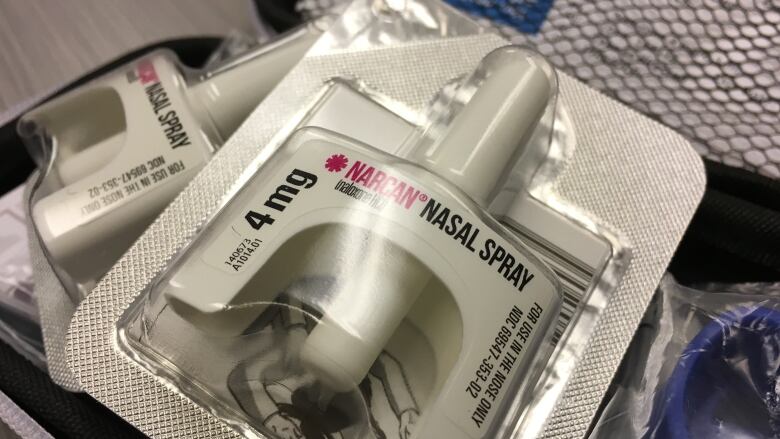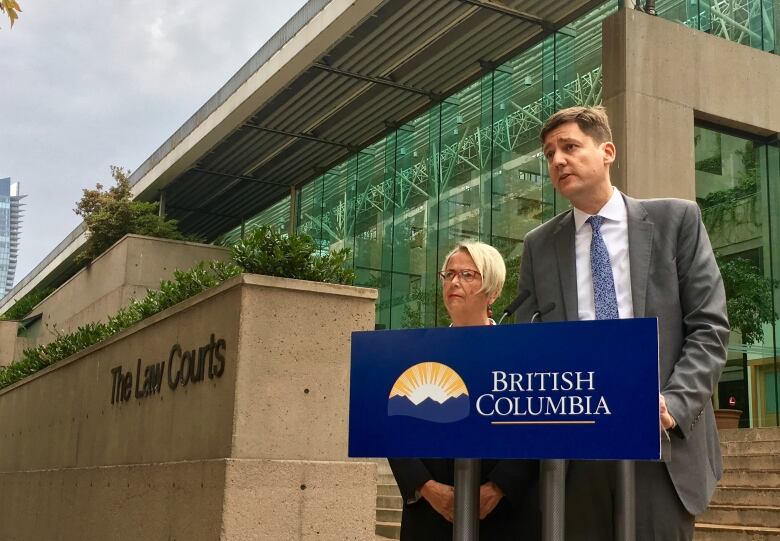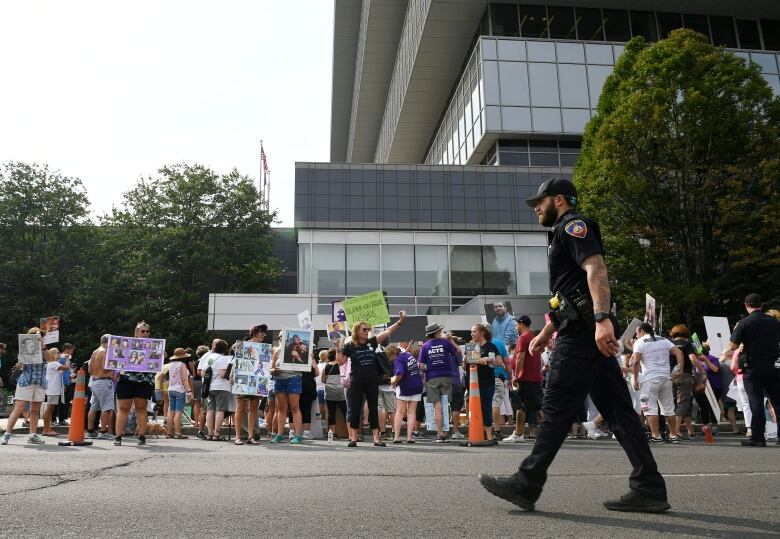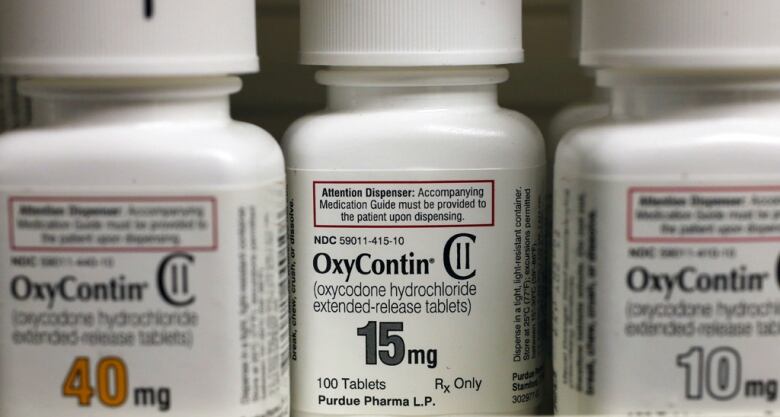Major U.S. opioid maker is helping fund a low-cost overdose antidote
Purdue Pharma has announced a $3.4M US grant to Harm Reduction Therapeutics to develop naloxone nasal spray

A company whose prescription opioid marketing practices are being blamed for sparking an overdose and addiction crisis says it's helping to fund an effort to make a lower-cost overdose antidote.
OxyContinmaker Purdue Pharma announced Wednesday that it's making a $3.4-million US grant to Harm Reduction Therapeutics, a Pittsburgh-based non-profit, to help develop a low-cost naloxone nasal spray.
The announcement comes as lawsuits from local governments blaming Purdue, based in Stamford, Conn., and other companies in the drug industry for using deceptive marketing practices to encourage heavy prescribing of the powerful and addictive painkillers.
Last week, the number of lawsuits against the industry being overseen by a federal judge topped 1,000.
Purdue is one of40 drug companies across Canada and the U.S.being sued by the province of B.C. The manufacturers are accusedof playing a part in the province's ongoing opioidcrisis.

Judge urges settlements
The Cleveland-based judge, Dan Polster, is pushing the industry to settle with the plaintiffs mostly local governments and Indigenous bands and with U.S. state governments, most of which have sued in state court or are conducting a joint investigation. Hundreds of other local governments are also suing in state courts across the country.
The sides have had regular settlement discussions, but it's not clear when a deal might be struck in the case, which is complicated by the number of parties and questions on how to assign blame.

The U.S. Centers for Disease Control and Prevention reported that drug overdoses killed a record 72,000 Americans last year. The majority of the deaths involved opioids. But a growing number of them are from illicit synthetic drugs, including fentanyl, rather than prescription opioids such asOxyContinor Vicodin.
Previous court appearances
Purdue agreed to pay $634 million US in fines back in 2007 to settle charges that the company downplayed the risk of addiction and abuse of its blockbuster painkillerOxyContinstarting in the 1990s.
It's facing similar accusations again.
Earlier this year, the privately held company stopped marketingOxyContinto doctors.
The naloxone grant is a way the company can show it's trying to help stem the damage done by opioids.
"This grant is one example of the meaningful steps Purdue is taking to help address opioid abuse in our communities,'' Purdue President and CEO Craig Landau said in a statement.

Naloxone is seen as one major piece in overdose prevention strategies. Over the past several years, most states have eased access to the antidote for laypeople. First responders, drug users and others have taken to carrying naloxone to reverse overdoses. But the price of the drug has been a problem for state and local governments in the U.S.
Pittsburgh-based Harm Reduction Therapeutics says it is trying to get its version to the market within two years.
"Combatting the ongoing crisis of opioid addiction will require innovative approaches to both prevention and medication-assisted treatment,'' said Harm Reduction co-founder and CEO Michael Hufford, said in a statement, "but it all starts with making sure lives are not lost from overdose.''












_(720p).jpg)


 OFFICIAL HD MUSIC VIDEO.jpg)
.jpg)



























































































